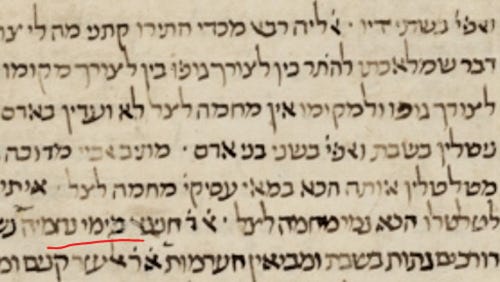Taught in Rebbe's Days (article summary)
A recent article in the Jewish Link dealt with the pattern “this was taught in the days of Ploni”. It certainly means that it was sparked by that incident, so the halacha wasn’t established this was prior. But, does it mean that is was established only in that generation, or from generations after as well. More summary after the image and links. (paid Substack with hyperlinks to sugyot, Jewish Link website, flipdocs.)
(1) In order to decide about the phrase’s meaning, we explore the sugyot in which it appears. These include Shabbat 123b, Bava Metzia 33a, Horayot 13b, Bechorot 30b, and of course our sugya in Bava Kamma 94b.
(2) Looking for consistency in these occurrences. One pattern: it is almost always Rabbi Yochanan, and indeeed, maybe we can kvetch the one occurrence of Rabbi Chanina into a scribal error for Rabbi Yochanan. What about fixing it to just that generation or ever after?
(3) In terms of whether establishes only a terminus a quo (starting boundary) or also a terminus ad quem (ending boundary), the following manuscript is fun to aid in framing the question, even if that wasn’t necessarily the scribe’s motivation.
Namely, in the underline, it was originally מימי, from the days, but the scribe rubbed out the inside of the mem to turn it into בימי.
(4) In Tosafot, Rabbeinu Tam is the one who tries to make the decree — that we don’t accept from repentant robbers, to encourage teshuva — was only for that one generation. After all, plenty of later examples in the gemara unto today have robbers returning, and being sued in court for the return. Rabbeinu Yitzchak shows how those cases are differrent for various reasons. Is this a professional long terms robber. For unsatisfying reasons, they don’t grant credence to the distinction between repentant robbers and those who have been caught.





